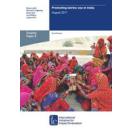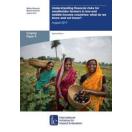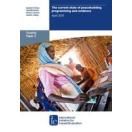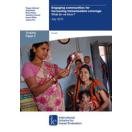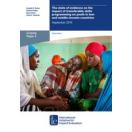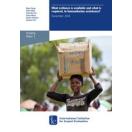
What evidence is available and what is required in humanitarian assistance?
3ie Scoping paper 1
Most areas in the humanitarian sector suffer from a paucity of evidence. This scoping paper provides an independent analysis of the evidence base of evaluations in humanitarian assistance.It identifies areas where there are key gaps and where there is a need to prioritise rigorous evidence so that research can be conducted on issues that are most important and valuable.
The study by Mike Clarke, Claire Allen, Frank Archer, Diana Wong, Anneli Eriksson and Jyotsna Puri incorporated a wide array of methods to assess available evidence, including an online survey of participants, interviews with humanitarian sector experts, and extensive literature reviews of humanitarian studies and strategy documents of major humanitarian organisations. It also includes an evidence gap map that presents the results of a thorough search for completed, ongoing and planned impact evaluations of humanitarian interventions.
The scoping study presents conclusions about a general lack of reliable and robust evidence from studies assessing the causal relationship between a policy or intervention and outcomes or impact.
This scoping paper is part of background scoping research and consultation undertaken to assess the scope and methods for impact evaluation in the humanitarian sector. The working paper, What methods may be used in impact evaluations of humanitarian assistance? examines the extent to which impact evaluation methods can provide evidence to help improve the effectiveness and efficiency in humanitarian action.
